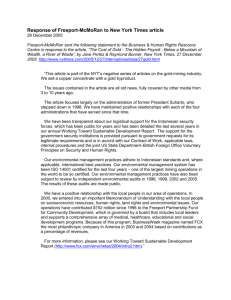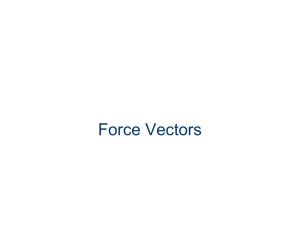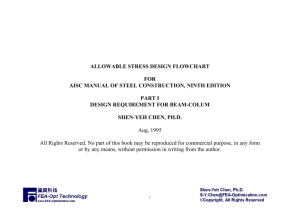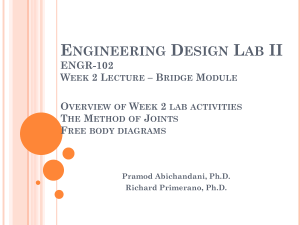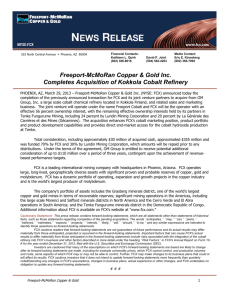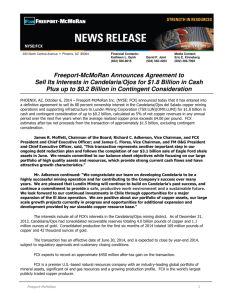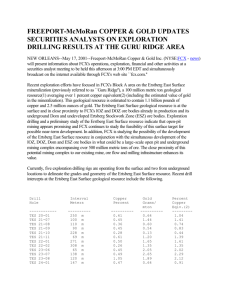Lecture 26: Frames and Machines…
advertisement
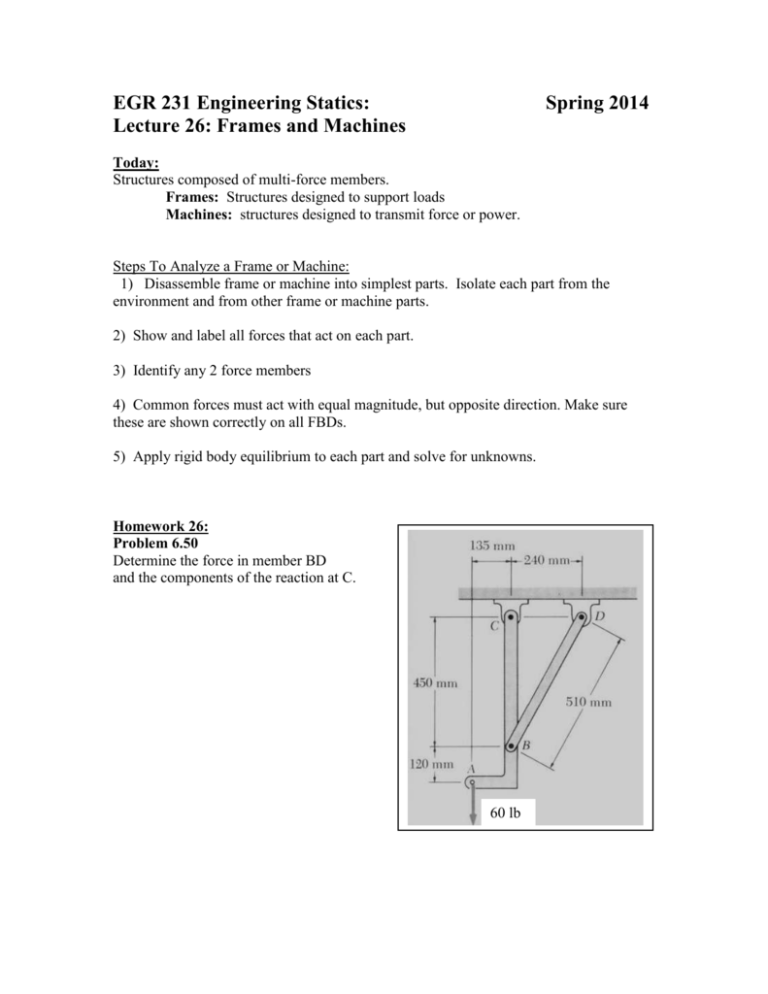
EGR 231 Engineering Statics: Lecture 26: Frames and Machines Spring 2014 Today: Structures composed of multi-force members. Frames: Structures designed to support loads Machines: structures designed to transmit force or power. Steps To Analyze a Frame or Machine: 1) Disassemble frame or machine into simplest parts. Isolate each part from the environment and from other frame or machine parts. 2) Show and label all forces that act on each part. 3) Identify any 2 force members 4) Common forces must act with equal magnitude, but opposite direction. Make sure these are shown correctly on all FBDs. 5) Apply rigid body equilibrium to each part and solve for unknowns. Homework 26: Problem 6.50 Determine the force in member BD and the components of the reaction at C. 60 lb Problem 6.54 An aircraft tow bar is positioned by means of a single hydraulic cylinder CD which is connected to two identical arm and wheel units DEF. The entire tow bar has a mass of 200 kg and its center of gravity is located at G. For the position shown, determine a) the force exerted by the cylinder on bracket C, b) the force exerted on each arm by the pin at E. Problem 6.61 Knowing that P = 60 lb and Q = 90 lb, determine the components of all forces acting on member BCDE of the assembly shown. Problem 6.69 Knowing that each pulley has a radius of 250 mm, determine the components of the reaction at D and E. 4.8 kN D 10ft Example 1: Find the forces in the pins that at points A, B, and C. 150 lb 9 ft r = 1ft B C E 30o Solution: Equilibrium of each member: F 0 and M 0 A FBy Start by showing FBDs FCy FBx x F y E FCx 0 B r = 1ft FCy 285 lb 0 (10) FCy (19)150 F 150 lb D Body BCE: M 150 lb 0 0 FBx FCx FBx FCx 150 lb FCx FAy 10tan30o o 30 0 20tan30o+1 FCy FAx 0 FBy FCy 150 10 ft FBy FCy 150 19 ft FBy (285) 150 135 lb Body ACD: M A 0 0 (10) FCy (19)150 (10 tan 30o ) FCx (20 tan 30o 1)150 0 (10)( 285) 2850 5.77 FCx 1882 F x y FAx FCx 150 176.2 lb FAy FCy 150 135 lb 0 0 FAy FCy 150 So: and FBx 326.2 lb 0 0 FAx FCx 150 F FCx 326.2 lb FA FAx 2 FAy 2 222.0 lb FC FB FCx 2 FCy 2 353 lb FBx 2 FBy 2 353 lb Example 2: Find the forces acting in each of the pins shown on the body 3 in 3 in A B E 3.5 in 1500 lb C 2.5 in D 4 in Draw FBDs A FB A FA B FA 1500 1500 lblb FCy C FCx FB B EE 1500 lb lb 1500 C FCx x FCy Equilibrium of each member: F 0 and M 0 Body AB is a 2 force member: FB FA FA FB along the horizontal FA Body BCD: M C F x F y 0 FA 1714 lb 0 (3.5) FA (4)1500 0 0 FA FCx FCy 1500 lb FCx FCx FA 1714 lb 0 0 FCy 1500 FCy 1500 lb Or you could have analyzed CBE instead and found the same forces in C: Therefore the pin forces are: So: FA FB 1714 lb and FC FD FE 1500 lb FCx 2 FCy 2 2278 lb Workout Problem: For the frame and loading shown, determine the components of all forces acting on member ABD. 4kN 3kN FAy Solution: Start with support reactions: A MA 0 B FAx 0 625FF 750(4) 1250(3) FF 10.8kN F x 0 FF F y 0 FAx FF 0 3kN 4kN F 0 FAy 4 3 FAy 7 kN FAx FF 10.8kN FBy For individual components: FBx FBy FAy FAx FBx FF FDy FCy FDx For Body ABC: M B FCx FDx FCx 0 0 500 FAy 500 FDy 250 FDx F x 4 FDy FCy 3 F 0 y 0 0 FAy FBy FDy 0 FAx FBx FDx 0 2 FAy 2 FDy FDx For Body CD: M C 0 F x F 0 y 0 0 500 FDy 250(4) 750(3) 0 FCx FDx 0 FCy 4 FDy 3 0 2 FDy 13 0 FCx FDx 0 FCy FDy 7 For Body CD: M B 0 0 2 FCx 5FF Solve using FAx 10.8kN FDy 13 / 2 6.5kN F x F 0 y 0 FF FCx FBx FAy 7 kN FCy 7 FDy 7 (6.5) 0.5kN FDx 2 FAy 2 FDy 2(7) 2( 6.5) 27 kN 0 0 FBy FCy FF 10.8kN FBx FDx FAx (27) (10.8) 16.2kN FBy FAy FDy 7 (6.5) 0.5kN FCx FDx 27kN
